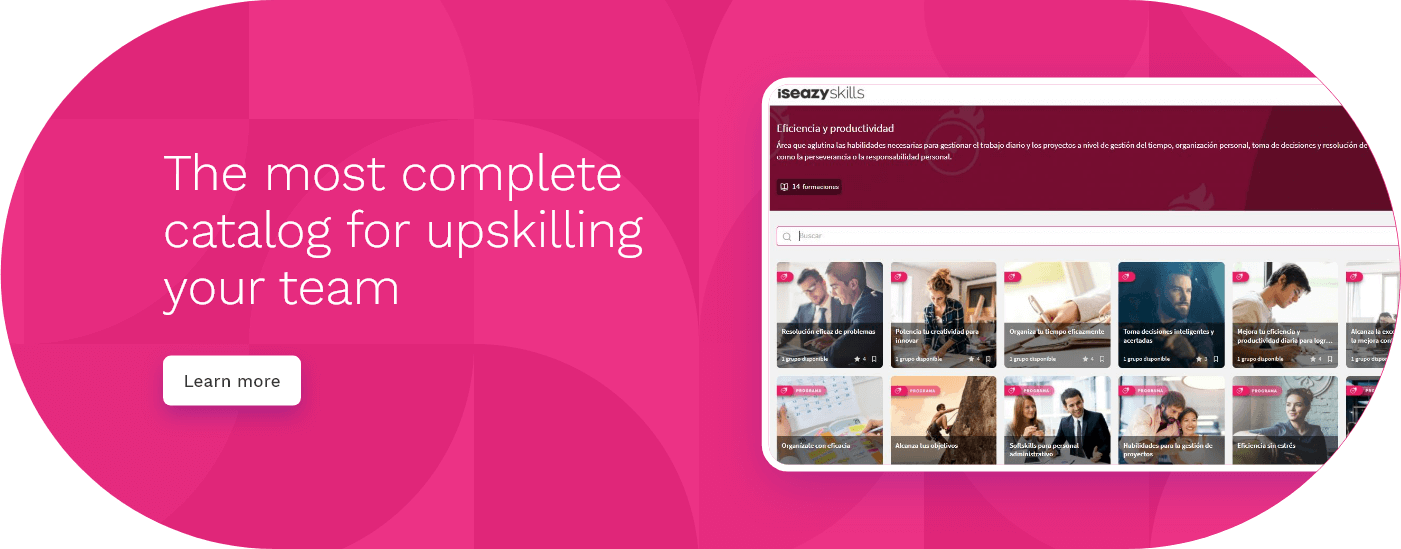Table of contents
ToggleWhen it comes to achieving business goals, high-performance teams rely on cooperation to be effective. Each member must carry out their tasks individually while working as a team with a shared objective in mind. Effective teamwork isn’t a given in every company though. It requires a strategy to develop teams truly capable of working together.
- First and foremost, it’s crucial to understand the individuals you work with, identifying their strengths and areas for improvement to promote synergy within the team.
- Secondly, you should encourage your team to work towards a common objective, prioritizing this over individual interests.
- You must also facilitate the development of trust among team members and cultivate a positive work environment.
- Finally, you should be able to face challenging situations positively and constructively.
The importance of fostering cooperation among team members
We’ve already seen how cooperation is crucial to achieving shared objectives, but it also comes with a whole host of benefits, both for employees and the company they work for.
Benefits of fostering cooperation in the workplace
- Increased productivity
- Positive work environment
- More effective problem-solving
- Innovation and creativity
- Individual and group professional growth
- Development of soft skills
When employee collaboration is achieved correctly, a strong working force is established. Besides creating a healthy and balanced work atmosphere, this enhances productivity levels, and motivates.
For this reason, collective cooperation helps a team to reach company-wide goals swiftly and efficiently. This is why it’s essential for each member to be clear on those goals, but to also remain focused on achieving them in a group context.
Prioritizing individual interests over group interests could adversely impact the team’s performance and outcomes. But how do we ensure that high-performance team members rally behind a shared goal?
Positive approaches to foster cooperation and teamwork
Encouraging collaboration among employees fosters proactive profiles, drives company innovation, and keeps individuals motivated by their assignments.
It’s therefore crucial for each member to understand the direct impact their work has on their peers. In this way, they’re able to recognize the role they play in achieving goals as a team. Below are a series of strategies for promoting these actions.
Open and effective communication
Establish communication channels within your company and encourage spaces where people can voice their opinions and ideas. This is one of the most effective ways to incentivize participation and teamwork.
It’s important for the work environment to appear open and flexible, allowing individuals to feel heard and valued. This not only creates a sense of trust but also instills a sense of belonging in each team member.
Shared goals setting
Ensure every member understands what is expected from the team and is aligned with these expectations. Alongside that, set timelines and priorities to offer a clear and concise overview that will drive teamwork, preventing conflicts or confusion.
Recognition and appreciation
One of the most effective practices for encouraging teamwork is acknowledging employees’ performance. We all appreciate feeling that our efforts are valued, so foster a culture that recognizes and appreciates employees.
Embrace diversity
Each individual brings a unique value to a company, and acknowledging this can promote teamwork. Highlight each employee’s skills and show them how their perspectives, and experiences add value to their teams. Leveraging diversity for problem-solving can lead to alternative points of view and creative solutions.
Team building sessions
This activity tends to break work rigidity, encouraging relaxation and enjoyment, which naturally fosters team participation.
Get creative! Make games, organize themed days, and set challenges to promote interaction and trust between team members.
Regular meetings
Conducting meetings to track progress is vital. This way, you can promote active employee participation and, if necessary, set new goals or find collaborative solutions to any issues that arise.
Promote collective learning
One of the most notable strategies for promoting participation is collaborative learning. You can create a space where each individual shares their skills, knowledge, and concerns, facilitating knowledge sharing.
Overcoming obstacles and conflicts in teamwork
While teamwork can be an incredibly positive thing, it’s important to acknowledge that working with people can sometimes be complex. For this reason, we recommend analyzing the causes of obstacles and addressing them promptly to overcome potential challenges.
Encouraging feedback
When monitoring team dynamics, create a space for providing individual feedback. This strengthens communication, and gives your employees a clear idea of what to work on and how to improve. You can also listen to their experiences and offer solutions to enhance group participation.
Mediation and conflict resolution
If disagreements arise, having an impartial mediator can help to find mutually beneficial solutions and restore harmony within your team.
Flexibility
If your strategy doesn’t achieve the desired results, don’t let frustration take over. Maintain and open mind and look for new ways to encourage cooperation within your team.
Develop your team’s power skills and achieve your organization’s goals
If you want to enhance your professionals’ skills and build cohesive teams that work towards common objectives, check out isEazy Skills, a comprehensive catalog of power skills and digital skills courses and programs.
Interested in learning more about soft skills training trends? Subscribe to our newsletter and discover the latest updates on training, skills, and e-learning solutions for organizations.

















